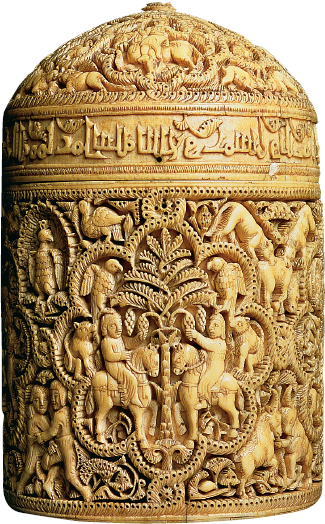Understanding Western Society
Printed Page 217
Life in Muslim Spain
In Europe, Muslim political and cultural influence was felt most strongly in the Iberian Peninsula. In 711, a Muslim force crossed the Strait of Gibraltar and easily defeated the weak Visigothic kingdom; by 720, the Muslims controlled most of Spain. A member of the Umayyad Dynasty, Abd al-
Throughout the Islamic world, Muslims used the term al-

In the early Middle Ages, the Iberian Peninsula was home to sizable numbers of Jews and Christians as well as Muslims. In business transactions and in much of daily life, all peoples used the Arabic language. With Muslims, Christians, and Jews trading with and learning from one another and occasionally intermarrying, Muslim Spain and Norman Sicily (see Chapter 9) were the only distinctly pluralistic societies in medieval Europe.
Some scholars believe that the eighth and ninth centuries in Andalusia were an era of remarkable interfaith harmony. Jews in Muslim Spain were generally treated well, and Córdoba became a center of Jewish as well as Muslim learning. Many Christians adopted Arabic patterns of speech and dress, gave up eating pork, and developed an appreciation for Arabic music and poetry.
By 950, Córdoba had a population of about a half million, making it Europe’s largest and most prosperous city. Many residents lived in large houses and easily purchased the silks and brocades made by the city’s thousands of weavers. The streets were well paved and well lit, and there was an abundance of freshwater for drinking and bathing. The largest library contained 400,000 volumes, a vast collection, particularly when compared with the largest library in northern Europe at the Benedictine abbey of St. Gall in Switzerland, which had only 600 books.
In Spain, as elsewhere in the Arab world, the Muslims had an enormous impact on agricultural development. They began the cultivation of rice; sugarcane; citrus fruits; dates; figs; eggplants; carrots; and, after the eleventh century, cotton. These crops, together with new methods of field irrigation, provided the population with food products unknown in the rest of Europe. Muslims also brought technological innovations westward, including new kinds of sails and navigational instruments, as well as paper.